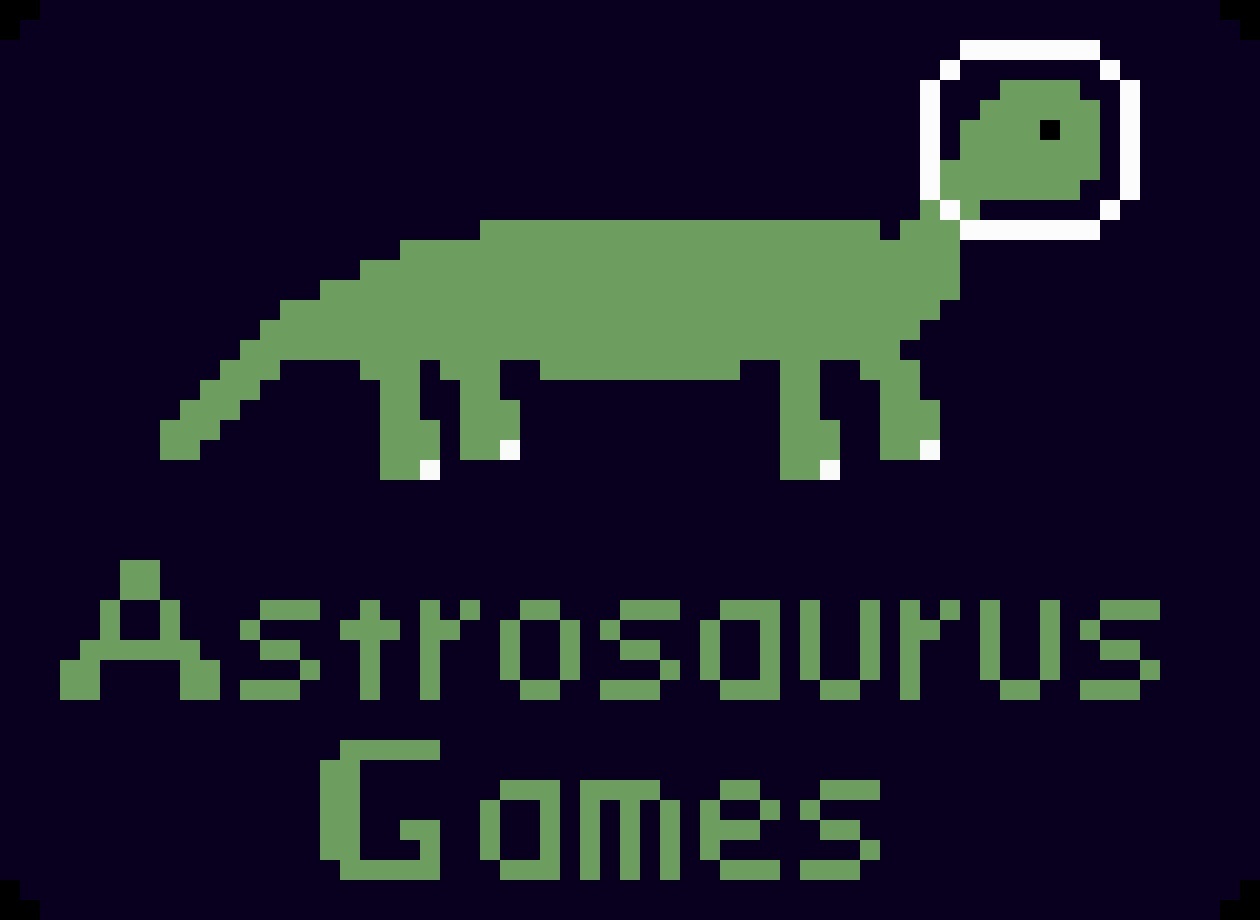
Cubed3: Hi, Neil! Thank you for taking time out to speak to us at Cubed3. Please introduce yourself and tell us about Astrosaurus Games. How did your studio come to be, what made you decide to get into video game development, and what influences (people, games, or otherwise) had an effect on you wanting to - and ultimately succeeding in - putting the company together?
Neil: Hi, guys! My name is Neil Armstrong, and I'm a fresh-faced independent game designer and the founder (and only member) of Astrosaurus Games. Collateral Thinking is my first full-fledged commercial game, which will be out on Wii U on August 18th in North America and Europe.
I am pretty sure that anyone who has played a video game (and definitely anyone who is reading a video game website) has had their own idea for a video game, and as a youngster raised on the Nintendo I was definitely no exception. From the moment our neighbours gave us their old NES and a copy of Mega Man IV, I have been in a perpetual state of daydreaming about video game concepts. Of course, the possibility of actually making a game always seemed pretty far-flung, only something that the wizards locked up at Nintendo and Capcom (among others) were capable of doing.
Since those NES days, it has only gotten easier and easier for the common dummy such as myself to make their own games, and after the whole Super Meat Boy / World of Goo / Braid indie revolution, the possibility that I could make my own game seemed much less remote all of a sudden. The thing that convinced me to take the plunge was an interview I read a few years ago with a developer I really admire, where the developer was asked if he ever used other people's ideas or pitches for his own games. To paraphrase their brutal honesty, their answer was that they would prefer to work on their own ideas because the reality is that only 1% of people have a legitimately "good idea" for a game, that only 1% of those people with a good idea are going to try and turn that idea into a game, and only 1% of those people will see that through and release an actual game.
That answer sort of shocked me into wanting to disprove their theory, so immediately after reading that interview I decided I was going to make a video game and that I was going to release it for a Nintendo system. Pretty much everything that followed - from choosing which game development software to work with and what style of game to create, through getting registered as a business and connecting with Nintendo - has stemmed from that decision. The fact that I have an amazing wife, amazing friends, and four amazing video game-loving brothers to support me certainly didn't hurt, either.
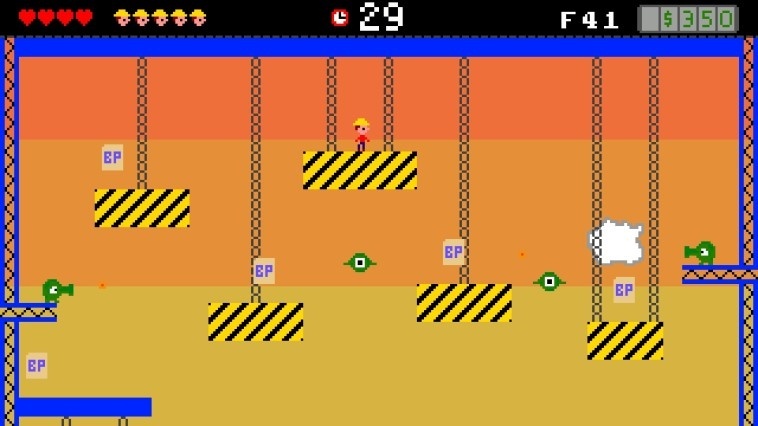
C3: As a single-person developer, how has the experience been so far in terms of getting up and running and managing your workload? It seems there are more and more small teams or one-man bands able to start up, these days. What do you put that down to, and is this something that will only become more common in the coming years? Do you foresee more "bedroom developers" in the future?
Neil: It has definitely been a long road getting to this point of releasing an honest-to-goodness game, and I've had to develop a lot of new skills along the way. I downloaded Construct 2 (my game creation tool of choice) just under two years ago, and in that time I've had to learn how to make a game, then how to make a good game, and how to navigate through the business, legal, and marketing elements of becoming a (somewhat) legitimate game company. This is especially true for releasing a console game, where there are understandably a few more hoops to jump through than releasing your game on your website or through itch.io or a similar service. You definitely have to learn how to manage your time effectively and focus on one task at a time, rather than flitting around from development to marketing to this and that and getting distracted. This is doubly true if creating a game is something being done on the side, which was the case for me as an elementary school teacher.
I was pretty far along into Collateral Thinking's development when I registered as a developer with Nintendo earlier this year, which has meant that the bulk of the last few months have been refining and retooling the game for Wii U and sorting out the business and legal logistics with Nintendo's publisher and development support teams. While those are hugely important tasks that are exciting in their own way, you can't help but want to return to the act of creating something new and experimenting with the 100 new ideas that fire into your brain as you work on the last game, so I can definitely see the value that larger teams bring in being able to distribute and delegate the many different jobs that come up in creating and publishing a game.
That said, I love the creative freedom of working solo and the feeling that I'm not imposing my ineptitude on anyone. I can work on what I want in the time that I have available, which is a pretty attractive proposition for any creative type. I am absolutely certain that we are going to see more and more bedroom developers in the years to come, especially first timers like myself. The fact is that there are tons of game-making tools that are cheap (or free), powerful, easy-to-use, and that have amazing communities and tutorials to use as a launching pad, and these are the same tools that are powering most of the non-AAA productions that we are playing today. At the same time, the traditional walls between producers and players are lowering or disappearing altogether with widespread digital distribution and publishing rules that have relaxed considerably. Platform holders like Nintendo, Valve, Apple, and everyone in between want more games on their platforms, and the smallest developers are the biggest beneficiaries of that.
I really cannot stress enough how little experience I had going into making my first game experiments and moving onto Collateral Thinking, and I'm now releasing a game on a Nintendo system. If some who has literally no idea what they're doing can get there, then I'm confident we will only see more people step forward in the future!
C3: Please tell us about your first independent game, Collateral Thinking.
Neil: Forgive the blatant pitch coming your way! Collateral Thinking is an arcade-platformer throwback for Wii U that's all about beating up alien ghosts, recovering blueprints, and rescuing billionaires on a tight schedule (and budget). The premise is that you play as a nephew-uncle construction company that's facing bankruptcy, until you get hired by a billionaire bear to build the world's tallest tower! Unfortunately, your ursine employer gets kidnapped by alien ghosts almost immediately, so it's your job to climb the unfinished tower and recuse him.
Each level is a self-contained screen that gives you one of four specific tasks to complete in 30 short seconds - to "Avoid" the hazards, to "Bust" the enemies, to "Collect" the blueprints, or to "Defeat" the bosses. These quickfire challenges force you to quickly survey your surroundings and then jump into action in order to progress through the 100+ floors while pocketing as much cash as possible in order to buy upgrades and raise your high score. The interesting wrinkle is that you can't use any attacks until you find and reclaim the toolbox on that floor, which is usually located pretty inconveniently for our hero.
The game is meant to blend the core floor-climbing, obstacle-negotiation of Donkey Kong with the original Mario Bros.' single-screen enemy management, and then crank up the speed to a more modern pace while adding the WarioWare-ish unpredictability of not knowing what your next goal is. With over 100 levels and three playable characters, there should be more than enough arcade action in Collateral Thinking for those yearning for a throwback throwdown.
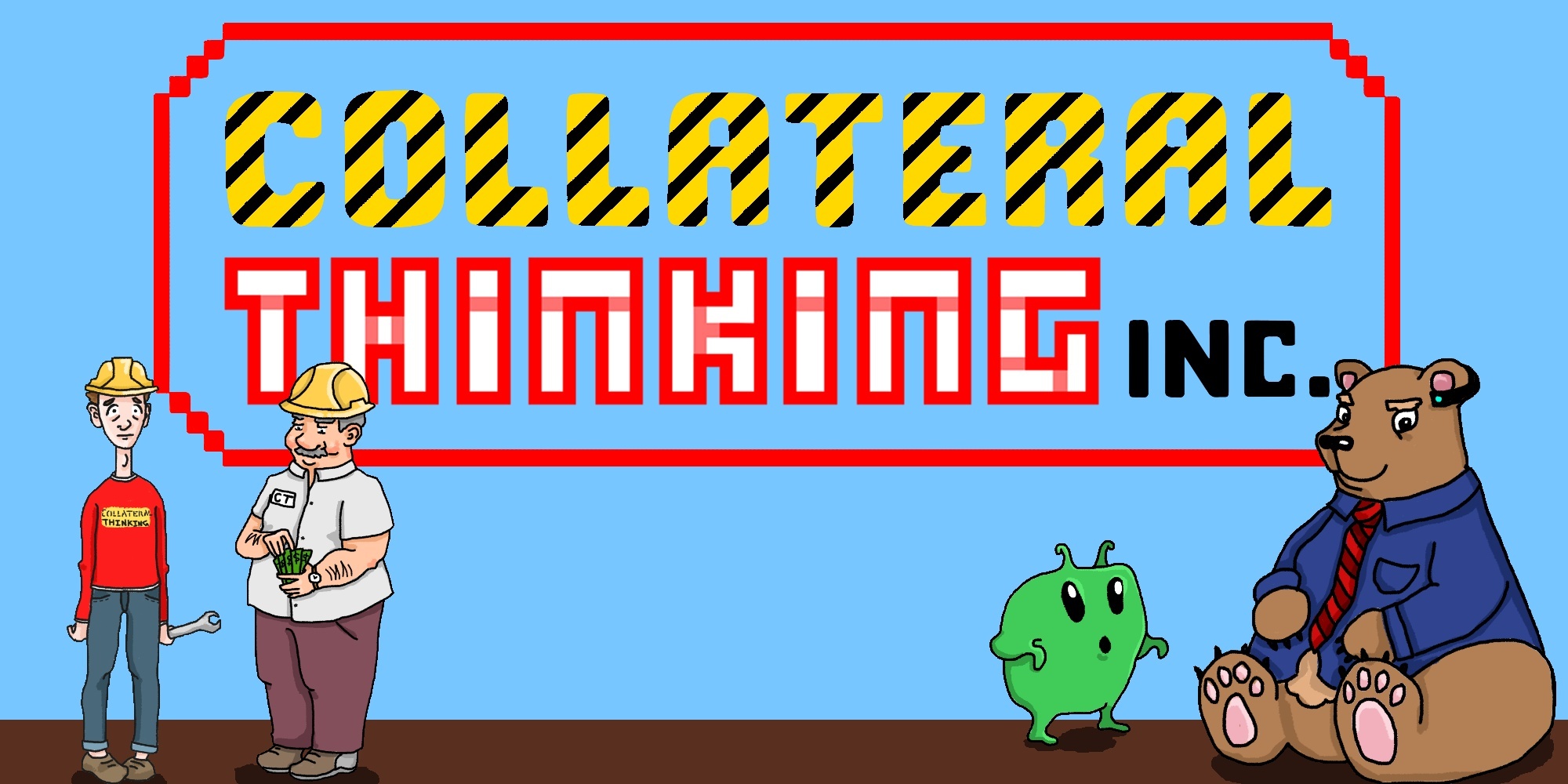
C3: Collateral Thinking's influences - Donkey Kong, Mario Bros. and WarioWare - are all, more or less, dormant franchises at the moment. It's especially surprising that there hasn't been a new WarioWare entry on the 3DS or Wii U (minus Game & Wario) this generation. Did the lack of games like these play a part in the creation of Collateral Thinking, or was it more a case of you being a fan of them and wanting to take the concepts a little further?
Neil: I would say a little of both!
When I was considering what style of game to choose for my first full project, I couldn't help but look to Nintendo's first games and consider their creative process. These arcade classics had many of the same limitations that I was facing, primarily small team sizes and graphical restraints (which was a space issue for them and a talent issue for me), and worked within those limitations to create something simple yet "catchy." So in a very conscious way, Collateral Thinking was meant to be my "Donkey Kong", if that makes sense. It helped that I love those games dearly and I have appreciated their genius for a long time, so I think that familiarity and appreciation informed many of my design decisions.
I was also definitely aware that those franchises and that specific style of game have been dormant for a while, particularly (and paradoxically) on the eShop, so I'm figuring and hoping that there is a demand for it! I can see why Nintendo might not want to pour their efforts into a new Donkey Kong or Mario Bros. when that time and money is probably better spent on pushing the Super Mario Bros. envelope, even if that breaks my heart a little, but I totally agree that it's bonkers that we haven't seen a true new WarioWare for either current Nintendo system! I know that each new WarioWare since the first title has had some mandate to promote a new hardware innovation, but I am 100% sure that fans would respond in a big way to a WarioWare in the style of "Rhythm Heaven Megamix" that went back to basics and pushed the envelope in terms of the breadth of content.
C3: How has your experience been working with Nintendo so far?
Nei: It is unbelievable how smooth and friendly the process it has been, to be honest. It's been a series of positive interactions, punctuated with feelings of "Oh my god is this really happening?" and "When will they discover that I'm a hack?" From developer support to business and publisher support, down to minute details like the aspect ratio of marketing materials, the Nintendo teams have taken every boneheaded question I've thrown at them and answered them gracefully and quickly. Even as a first-time developer with no prior experience whatsoever, I never felt like an afterthought or a distant priority. There are certainly a lot of steps that need be taken in order to register as a developer, then acquire the development hardware, and make your way through the publishing and approval processes, but their documentation is top-notch and their support teams were always happy to walk me through things. I really cannot stress the fact that I had no development or publishing experience prior to starting work on Collateral Thinking and now I'm about to release a game on a Nintendo system, so that should hopefully speak volumes to Nintendo's support.
C3: It's often been said that it is more difficult to go through the process of releasing a game in Europe than North America, due to the various ways the ratings boards operate (PEGI in Europe and ESRB in North America), as well as the need to release games with various language options. How has your experience been in this regard, and can you share any requirements for releasing a game in both regions? For example, do all games released on Nintendo platforms need to have specific language options before being given the green light in Europe, or is it fine to release only in a certain language? Is any help offered to address localisation issues by Nintendo or any other company?
Neil: Well, I had the luck of registering as a Nintendo developer just as they adopted the IARC (International Age Ratings Coalition) rating system for their European releases. Whereas before you would have to pay and obtain ratings through the many different European rating agencies individually, the IARC compiles all of these different agencies into one user-friendly, free-of-charge system. So getting the European ratings was actually smooth sailing!
For a European release, there are certain localisation and language guidelines you need to meet in order to release in specific regions within Europe and Australia. Without getting too specific, you have to consider the localisation of not only the game itself, but its manual, its business documentation, its marketing materials, among other elements like its Miiverse community messages or its eShop descriptions. The game itself is actually the same language across all territories, but Nintendo required that I translate the e-manual and eShop descriptions for release in certain regions, for example.
Clearly, the French I took in elementary and high school was not going to cut it here. Thankfully, one of my younger brothers is a language buff currently in his fourth year of studying linguistics at the University of Toronto, and he happily agreed to tackle all of my translation challenges for me. Sorry if that's be a bit of a cop-out answer! (If any other garage developers out there are interested in my brother's services, drop me a line!)
The Nintendo team doesn't offer any formal "localisation services," although the Nintendo of Europe team were super helpful and accommodating as the documentation passed back and forth!
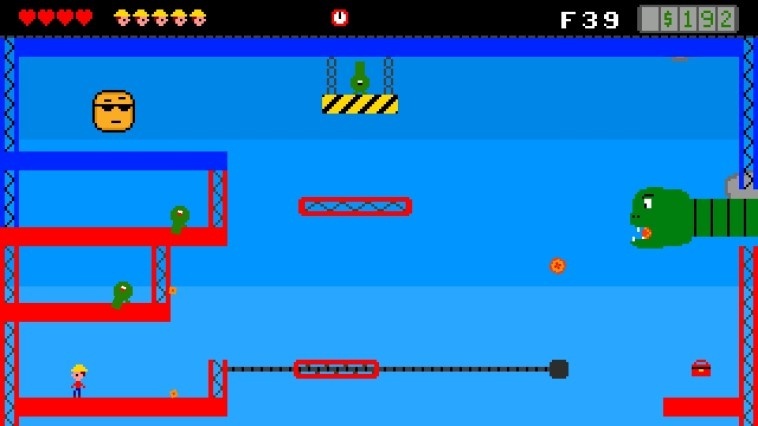
C3: What challenges have you faced working on your own? Is it difficult managing your projects' developments, or is it a weight off your mind knowing you have the freedom to do things your own way at your own pace? Do you still set yourself deadlines?
Neil: There have definitely been some challenges! There were a few problems and bugs that came up in development that just about defeated me. Something as seemingly simple as setting up a high score table stumped me for a full week, and there were numerous occasions where I would make some great adjustment that essentially made the game unplayable, so it's safe to say I pulled out a few hairs in my despair. In those moments you have to learn to just walk away or change tacks for a while and come back to the problem with fresh eyes. Another major roadblock can be carving out time to work on the game and finding that motivation to push ahead. As much as I love making games, it's not always the easiest thing to convince yourself to jump into development after a full day of work. It helped to set certain goalposts and milestones, because you can lose track of how far you've come when you're so close to the game itself. At the same time, you have to be able to pick yourself up when a deadline (or two) inevitably sails past you and get back to work. Overall, though, working on this game has been one of my proudest accomplishments and I have zero regrets!
One thing that I did quite consciously was choose a comparatively straightforward genre for my first release, and I made sure that the scope of the game was reasonable. One of the pitfalls that many first-time developers fall into is that they want to make a game in the same style as their favourite games without considering their complexity. This is a totally understandable impulse, because of course you want to make a game with mechanics that you are familiar with and that you are passionate about. The problem is that many of those games that we love (MMOs, JRPGs, fighting games) have notoriously complex systems to develop and balance, as well as huge amounts of content to create and curate. If a developer is tackling those humongous problems at the same time that they are learning the very fundamentals of game creation, there is a strong chance they're going to get overwhelmed, discouraged, and possibly abandon the project partway through. It's great that Final Fantasy 7 or Fallout 3 made you want to become a game designer, but that style of game may not be the best choice for your first game unless you want to lose your cool or lose your mind.
For my first full game, I knew pretty quickly I wanted to create an arcade-platformer. Not only do I love to play and pick apart old-school platformers, but I also understood that their comparatively limited scope compared to an RPG or a game with online play meant that I could focus a little more on learning how to master the game development tools and how to grow as a game designer without getting too discouraged along the way.
C3: How has working with the Wii U hardware been? What difficulties and positives have you experienced in developing for the console?
Neil: It has been a really interesting experience! It took me some time to get up to speed, but the fact that I'm using middleware and the Nintendo Web Framework makes everything much simpler. I'm at the point now where I can pretty quickly whip up a barebones prototype and mess around with some of the Wii U's unique features, which has been a ton of fun to play around with. By the time I got the Wii U development kit, the game itself was about 90% finished, which was wonderful because I could spend most of my time working towards getting it to run properly on the Wii U, but it also caused a few hiccups. I really had to rethink certain design decisions I made in order to optimise the game for the Wii U hardware and to make sure the game met Nintendo's certification standards, so I'm happy that for my next project I'll be able to build it specifically for the Wii U from the ground up in order to avoid those headaches in the future. Honestly, even with the NX on the horizon I think that the Wii U has so much potential that has yet to be explored!
C3: Can you share any details on your future projects following the release of Collateral Thinking?
Neil: I would love to! Coming off of Collateral Thinking, there are a few ideas and prototypes I've been tinkering with, but I'm focusing on one project in particular that I'm hoping to get out the Wii U's door by the end of 2016, and that's "Ruff Copy."
Ruff Copy is a maze-based puzzle/action game about rescuing hundreds of cloned dogs from the evil clutches of the Golden Laboratories Research Company! You play a scientist that is trying to lead all of the cloned pooches to safety using nothing but a laser pointer and that big old brain of yours, before all of the dogs are turned into hot dog meat. Each level is a single test chamber that you help the dogs escape, and these chambers would have different biomes and experimental devices to help (and hinder) you out. It will probably be a similar scope to Collateral Thinking, and even early on I am super excited by it!
After that, I'm planning on producing a few mobile projects that I'm very excited about while I work on my NX attack plan.
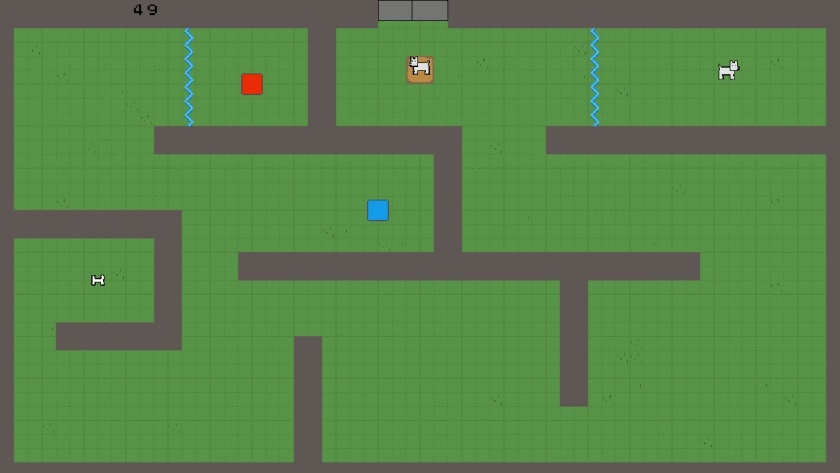
C3: Are there any types of genres you'd like to try your hand at? Perhaps a more fantasy-like role-playing game? Would you consider working with 3D engines, or do you see yourself sticking with your passion of retro-styled 2D games? Are the tools out there for one-man teams like yourself to make affordable 3D games, or is extra manpower and funds required? Additionally, are there any sound directions you would like to incorporate into future projects?
Neil: Ugh, there are so many ideas and genres that I want to explore! I have tons of game design documents tucked away on my phone for everything from a farm-animal JRPG to a police-themed kart racer to a 25-player party game to a digital board-game/shmup hybrid, and about a hundred different variations on the classic platformer. I'm sure one or two of them might even be good ideas! The fact is that my two main limitations as a designer at the moment are time and my ability to create art, so I can realistically only tackle one idea at a time. That means that realistically I'll be sticking to smaller projects in the 2D space for my next few projects.
I would love to work in 3D, though! Especially in the low-poly space that has been flourishing recently, games like Gang Beasts, Lovely Planet, and Poly Bridge show that you can achieve a clean, consistent, and compelling visual style without having to go polygon or texture-crazy. I'm sure there are affordable, user-friendly tools out there to help with 3D game creation, especially with Unity 3D gaining such traction, but I'm afraid I'll need to do a little research first and find a few months to learn how to use them!
I want to explore different sound directions in future projects, as well! I've loved learning how to make chiptunes, but I would also love trying out live instrumentation or generative music, as well! I was so impressed by Electronic Super Joy, and how the developer started developing each level by first choosing one of EnV's songs and basing the level design on the "feeling" of that track. How cool would it be to take that "album" approach further and have a completely different gameplay or visual style for each song?
C3: As the end of the Wii U's life approaches, are you looking ahead to bringing your games to other platforms, such as 3DS, PS4, PC, mobile, or even the NX?
Neil: Most definitely! I have a bunch of ideas that would be a great fit on mobile and PC. Mobile is particularly interesting, because there is still so much that can be done to marry their unique inputs to classic game design. In terms of the console space I'm looking ahead to whatever the NX turns out to be. I'm planning on stick with Nintendo partly because I think my style meshes with the Nintendo audience, and partly because I'm a rampant Nintendo fanboy at heart.
I really see huge value in creating exclusives, especially as a one-man development band. Not only do exclusives reduce the amount of paperwork and yellow-tape navigation that all platform holders require, but I also think creating an exclusive helps cut through some of the noise and gets your game noticed. Console owners want something to champion and to brag about, and giving them an exclusive sort of brings them on to your team. I also think that as a designer, building games that suit a system's particular audience and inputs (not to mention the system's specifications themselves) results in a more focused, tailored experience that I think gamers appreciate.
Wherever my games end up, my hope is to build games that are steeped in that Nintendo-style of simplicity and surprise.
C3: Speaking of the Wii U, what are your thoughts on the console and its performance this generation? Where do you think it went wrong for Nintendo, and do you think more could have been done with the GamePad concept?
Neil: Man, I love the Wii U! All of the recent eulogising for it is both a total bummer and totally understandable. The whole thing felt very tentative from the beginning, this machine that wanted to be a thousand different things and ended up feeling a little incoherent. Nintendo wanted to combine the broader Wii and PS360 audiences, but it just didn't have a compelling enough reason for either to convert. It seemed like there wasn't enough confidence in the Wii U's core concept to let it stand on its own, which is upsetting because it made so many cool strides. To me, Miiverse was a game changer, Off-TV play was a game changer, and the asymmetric multiplayer was a game changer, but their appeal is difficult to understand and convey without playing or even owning the system. If you compare the focused simplicity of the Wii Remote to the "Swiss Army knife" approach of the GamePad, it's clear that the Wii U didn't have the same overt hooks or message. So maybe chalk it up to communication issues or muddled direction, but either way it's a definite shame.
It was also a victim to poor timing, as well. It was quickly left behind by third parties moving to stronger hardware in the same way that the Wii had been, where developers found it difficult to expend the time and money to build a port that would be inherently sub-standard compared to other console versions and would therefore (and rightly so) underperform on Nintendo systems. I can understand Nintendo trying to bring third parties on board, but I can also understand why most never took that leap in a meaningful way.
That said, it had so many good games! It had the best Mario Kart and Smash Bros. yet, genuinely fresh experiences in Splatoon and Nintendo Land, polished masterpieces like Super Mario 3D World and Donkey Kong Country: Tropical Freeze, and a cornucopia of awesome indie games.
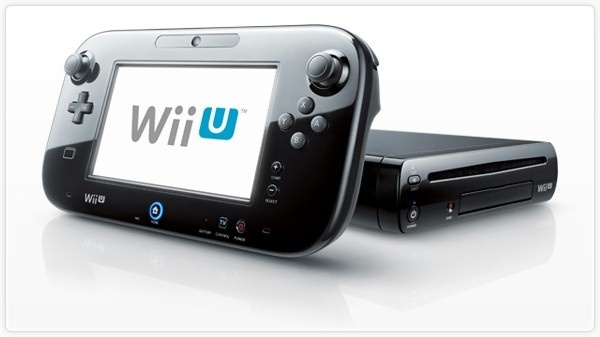
C3: Although we don't have solid facts, the latest rumours suggest the NX will be some sort of portable and home console hybrid. As a fan of the company and as a developer, what are your thoughts on this, and what would you like to see from Nintendo's next system?
Neil: As someone who obsesses over each new Nintendo rumour that squeaks out, this most recent round of rumours has me flipping out. I have to say that I'm a big fan of the hybrid system idea, and that it makes a lot of sense! At a very basic level, I'm excited as a consumer that I only have to buy one Nintendo system and I'm excited as a developer that I only have to target one Nintendo system. In my mind, the two types of Nintendo games that resonate most with consumers are their couch-based multiplayer experiences and their portable experiences, so if their magicians have devised a system that can accommodate them both then I'm confident they will have a hit on their hands. There are a lot of question marks around it, but it's almost more exciting to know that there are more tricks up Nintendo's sleeves. Of course, this is coming from someone who loves it when Nintendo gets weird.
Whatever the hardware looks like, I know it will be exciting to play with and work with. More than anything I hope that Nintendo carries the Nintendo Web Framework program forward, keeps building strong relationships with middleware companies like Unity and Scirra, and continues to find ways to bring new developers into the fold. Thankfully, it seems like all of the trends are pointing in that direction!
C3: What are your thoughts on virtual reality? Is it something you would like to explore, given the opportunity, and do you think it will take off?
Neil: Ugh, it's so cool and so prohibitively expensive! It's incredibly fascinating, and the non-gaming applications will definitely transform the way we consume media in the next couple of decades. I reeeeally want to try it out, so I'll have to make my way out to an expo or convince someone with a few thousand to burn to invest in a set. As awesome as it would be to work with VR, the time (and money) it would take to come to grips with the hardware would probably be better spent on making a non-VR game or ten. Then again, the tools will only get cheaper and easier to use, so who knows where we'll be in five years!
C3: Do you have any advice for anyone aspiring to be an indie developer like yourself?
Neil: I absolutely do, and that is to start designing and making games as soon as you can! You can open up a new tab right now and download programs like Unity, Construct 2, or Game Maker, all of which have tutorials ready to go and can export to PC, mobile, and consoles. You do not need to know how to program, you just need to be a patient problem-solver. I don't know the first thing about coding, and I'm about to release a game on a Nintendo system! So do a little research, choose the best program for you, read through a few tutorials and get started.
Create a few demos in a variety of genres to understand how different video game mechanics are implemented and expressed. Even if they go nowhere, little demos and proof-of-concepts are going to push your understanding of your tools and your game design sensibilities that much further. Start off with a basic gameplay skeleton, like moving a block around platformer-style, and then slowly add other layers on top of that. You will start to pick up on vital gameplay elements that you had never considered before, like health bars, pause screens, or even the basic interaction between the player character and their environment.
Once you start getting a bit more familiar with your tool of choice, try to look at every video game you play through "designer goggles." Why is this level laid out the way it is? How quickly can I reach the gameplay? How does that locked door work? How could I replicate that behaviour or that mechanic? Eventually you're going to start asking and answering these questions in the back of your mind, even when you're not parked in front of a computer.
C3: If given the opportunity, what video game franchises made by other companies would you like to work on?
Oh man! I have no desire to work on any idea that isn't my own, with the glaring exception of almost any Nintendo franchise. I would work on pretty much any Nintendo game in a heartbeat, if only to make my ten-year-old head explode!
That said, I'm not sure I would want to work with one of Nintendo's tentpole franchises like a Zelda or a Mario, partly because the stress would give me a heart attack and partly because their scope demands that you can't stray too far from their beaten paths. It would be interesting to work with some of the smaller, forgotten franchises that Nintendo has tucked away. How about an Ice Climber that had responsive controls and played with the whole "single player co-op" thing that Smash Bros. introduced? Or a new Gumshoe runner game? Or turn Urban Champion into a wackier Final Fight-like brawler?
My dream project would be to make a Super Kid Icarus, a pseudo-SNES side-scrolling sequel that the original never got. Bring in elements of Uprising, like the multiple weapons, the wider cartoon-ish world, and more of the shmup action, and bolt them on to the side-scrolling Metroid-lite action of the original. It could even bridge the gap between the games, story-wise.
So I definitely have the ideas, I just need to swindle Nintendo into thinking I'm not a hack.
C3: Finally, what games are you playing lately, and what has been your game of the year so far?
Oh geez, to be honest, making games has left me with way less time for playing games, so mostly I've been trying to beat down my steadily growing backlog with games like Runbow and SteamWorld Heist! There have been a ton of great games this year so far, though. I fell pretty hard down the Fire Emblem Fates rabbit hole, which has eaten up the bulk of my gaming time (and most of that has been soft-resetting).
My favourite game of the year so far has to be Shutshimi. Ugh, it's just so silly and so brilliant! It totally rethinks how a shmup should work, trading in precision for party-time psychedelics. The elaborate power-up descriptions that you have no time to read, the eyebrow-raising pixel art, and the deceptively robust gameplay mechanics just blew me away. It's the kind of game that you can jump into for a few rounds with friends and get completely sucked into. You can't help but yell at and cheer with the game.
But seeing as how Shovel Knight was my 2014 game of the year, and Plague of Shadows was my 2015 game of the year, I'm thinking that the upcoming Shovel Knight expansions are probably going to take the crown by the end of 2016 (if those can count).
C3: Where can readers reach you for updates on your projects?
Neil: You can follow me on Twitter at @Astrosaurus123 for any announcements and the occasional eye-rolling observation, and check out my very professional website at astrosaurusgames.wordpress.com if you would like to learn a little more about myself or my games.
C3: Thank you for your time, Neil, and good luck with your future projects!
Neil: Wow, thanks so much! I appreciate you taking the time, guys. All the best!

 Sign In
Sign In 18.08.2016
18.08.2016
 Subscribe to this topic
Subscribe to this topic Features
Features





 Top
Top

